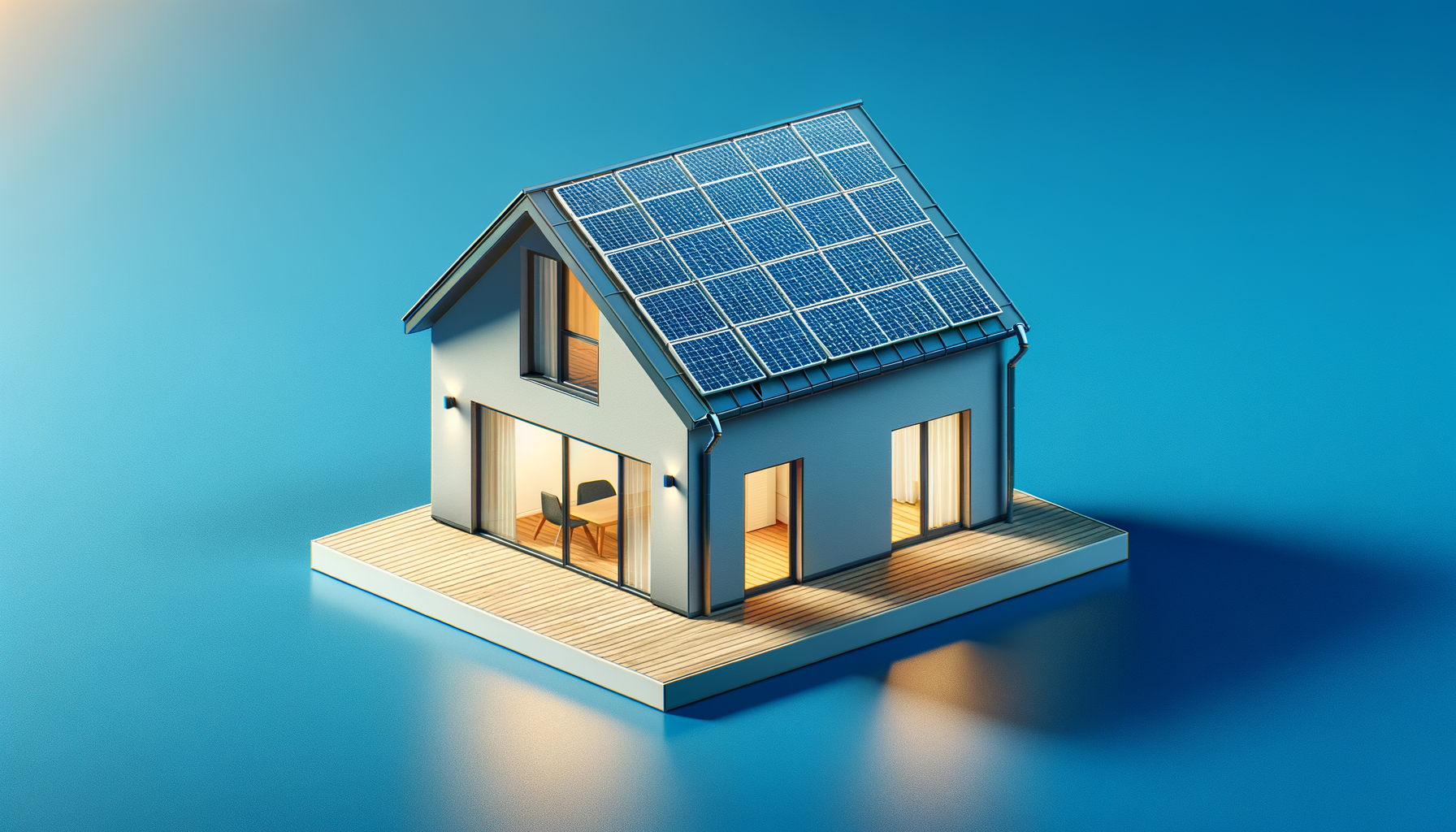Determining the Number of Solar Panels to Power Your Home

Updated 4 months ago
Determining the Number of Solar Panels to Power Your Home
The shift to solar energy is more than just a trend; it's a sustainable choice for the environment and can lead to significant savings on your energy bills. But one of the first questions homeowners ask when considering solar power is: How many solar panels do I need to run my whole house? In this article, we'll explore the key factors that determine the number of solar panels required, the process for calculating your needs, and how to get a personalized estimate for your home.
Understanding Your Energy Consumption
Before diving into panel counts, it's important to understand your energy usage. Your monthly electricity bills provide the best clue to your consumption patterns. Look for the kilowatt-hours (kWh) you consume on average per month. This figure is the starting point for calculating the number of solar panels needed.
Factors Influencing Solar Panel Count
Several factors can influence how many solar panels are necessary to fully power your home:
-
Sunlight Exposure: Geographic location plays a crucial role in solar energy production. Homes in sunny states like Arizona will need fewer panels compared to those in less sunny areas like New England.
-
Energy Efficiency: The more energy-efficient your home is, the fewer solar panels you may need. Consider investing in energy-saving appliances or LED lighting as part of your solar journey.
-
Panel Efficiency: Solar panels come with different efficiency ratings. High-efficiency panels convert more sunlight into electricity, meaning you'll need fewer of them.
-
Roof Space: The amount of viable roof space available for solar panel installation can limit the number of panels you can install.
-
Future Energy Needs: If you anticipate increased energy usage, such as from purchasing an electric vehicle or expanding your home, factor this into your calculations.
How to Calculate the Number of Solar Panels You Need
Calculating the number of solar panels you need involves three key steps:
-
Determine your average energy usage by reviewing your past utility bills.
-
Assess the production ratio in your area, which is the wattage a solar panel will produce in your specific location.
-
Calculate the total wattage needed to cover your energy usage, considering the production ratio and chosen panel efficiency.
Here's an illustrative example: If your home uses 1,000 kWh per month and you live in an area with a production ratio of 1.6, you'll need a solar system that can produce about 625 kWh per month (1,000 divided by 1.6). If the solar panels you're considering have an efficiency of 250 watts per panel, you'll divide the total wattage needed (625 kWh multiplied by 1000 for watts) by the efficiency of a single panel to get the number of panels required.
Let's break that down into a simple formula:
Number of Panels = (Average kWh per month / Production Ratio) * 1000 / Panel Wattage
By substituting your values into this formula, you'll get an estimate of the number of panels you will need.
Getting a Personalized Estimate
While the above method provides a rough estimate, your best bet for an accurate count is to get a professional assessment. Home improvement companies with solar panel expertise can provide personalized analyses. They take into account your specific home layout, roof pitch, and surrounding tree coverage, among other variables.
Maximizing Solar Potential
After calculating the number of solar panels you need, consider the following strategies to maximize your solar potential:
-
Orient Panels Correctly: In the Northern Hemisphere, panels should typically face south to capture the most sunlight.
-
Angle Panels for Optimal Sun Exposure: The tilt of your panels should match your latitude for maximum efficiency.
-
Consider Time-of-Use Metering: Some utilities offer time-of-use plans which can affect how your solar power is billed.
-
Maintenance Matters: Keeping your solar panels clean and in good repair will ensure you get the most from your investment.
Understanding the number of solar panels needed for a whole house is just the beginning. With a combination of thorough research and professional advice, you can ensure that your home's transition to solar power is a smooth and profitable journey.
Frequently Asked Questions
Q: Can I power my whole house with solar panels? A: Yes, it is possible to power your entire home with solar panels, provided you have the proper setup and enough panels to meet your energy needs.
Q: How long do solar panels last? A: Solar panels are typically warrantied for 25-30 years, but they can last longer with proper maintenance.
Q: What happens to excess energy my solar panels produce? A: Excess energy can be sent back to the grid, often for a credit on your account, in a process known as "net metering."
Q: Will I still receive an electricity bill if I have solar panels? A: While your bill may be greatly reduced, most homes will still receive an electricity bill, especially if they're connected to the municipal grid and use electricity at times when their solar panels aren't producing energy.
By considering the points outlined in this guide and partnering with experts who understand the intricacies of solar installations, you can ensure that your home is efficiently and effectively powered by the sun. Remember, the journey to a solar-powered home starts with a simple calculation and an understanding of your own energy needs.




